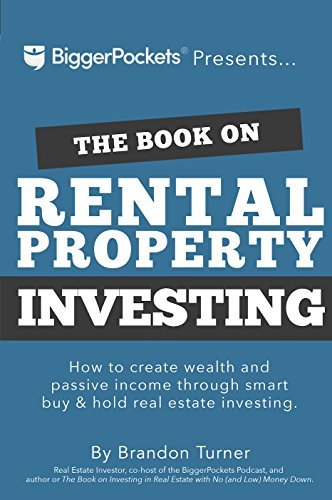It could work for any scenario. You needed a bigger house for the kids, you wanted a nice cash-flowing property, you wanted a property to fix-and-flip, whatever the reason is, you have to face the fact: You have to submit an offer, and there is a chance that the seller will reject it.
But getting rejected isn’t always a bad thing. It is far better to be rejected than to get a bad deal accepted. It’s common among successful real estate investors to say “The biggest difference between the successful and unsuccessful is that successful people are more likely to say no.”
But any property can be a good fit if the numbers make sense. So once you do the calculations and the math looks good, and you’re ready to offer on the property, there is still a chance that the seller will reject your good offer. So what can you do to increase the chances of acceptance?
Here are the 16 easy ways to get the seller to accept your offer:
1. Work Fast
The early bird gets the worm, right? That is definitely true in real estate.
There are a lot of times when you will be buying properties from the same person as a real estate investor, and when you build a reputation of closing fast, you are much more likely to get the deal, even at a lower price!
The more trust you build in closing the deal and working fast, the better off you will be.
2. Offer Your Best Up-Front
Now, this certainly depends on the scenario. In some cases, you can find motivated sellers that just want the property off of their hands. Maybe they are trying to move somewhere else and the property is the only thing keeping them there, maybe the property has turned into a burden and they just want to be free, whatever the reason, you may be able to make a deal.
If you find a motivated seller without much competition, you can certainly offer less than the asking price, and there is a pretty good chance that it may be accepted. And if it is rejected, since there is no competition, you can offer again!
However, for properties that have more competition, it is best to offer what you’re willing to pay up-front, because if you lowball the seller and they reject it, chances are someone else will snag the property in that time.
3. Submit a Letter With Your Offer
When you submit an offer, it is easy to forget that there is a human being on the other side of the line. They are going to be looking at your offer, seeing if they like what they see. Why don’t you make them like it more?
People always like personal connections, so appeal to their emotions by submitting a letter with your offer. This letter will give them a brief description of you, and what your goals are with the property. This will begin a connection even before you see who is on the other side, and they will generally feel more inclined to accept your offer when they see that you are not “just another investor”.
4. Find the Seller’s True Motivation
It is a lot easier to get an offer accepted when you find the things that make the seller tick. If they want to the property gone ASAP, they will probably value a fast closing over highest price. If they are just looking for a profit, they will probably value a high price.
Referring back to some of the examples above, if someone just wants to get rid of the property that has become a burden for them, offer quick. You may be able to lowball and get it accepted, especially if there is no competition for the property.
But if the seller is a real estate investor, or a flipper, you will probably need to offer the asking price, or perhaps even higher if it is a competitive market.
5. Make Sure You Feel Uncomfortable
This doesn’t really make sense, does it? But it does.
You need to feel uncomfortable with your offer, because if you feel comfortable with it, that generally means that you’ve offered too much. You can always find other deals if one gets rejected, so make sure the deals that do get accepted are killer deals.
6. Submit an All-Cash Offer
I personally would never recommend doing all-cash for an investment property, because you are giving up potential returns.
But, if you are looking for a place to live, or you just want to ensure the deal is accepted, all-cash is the best way to do it, and will be accepted 99% of the time.
7. Remove the Financing Contingency
If you are using all cash, you don’t need to worry about this step. But if you plan on using a loan, the financing contingency has a risk/reward that you need to evaluate with each individual property.
A contingency is a legal agreement that states that if something is wrong with the property in a certain way, the buyer can back out and get their earnest money back. Earnest Money is money that is deposited to tell the seller that you are serious about the property, and you can put your money where your mouth is. More on this with tip 11.
A financing contingency basically says that if you cannot obtain financing, then you can back out of the deal and take your earnest money with you. Without the contingency, if you cannot obtain a loan, then the seller keeps the money you deposited.
If you are confident that you can get a loan however, removing the financing contingency greatly increases the confidence that the seller will place in you, and you are much more likely to get the deal. If it is worth the risk, it is up to you.
8. Waive the Inspection Contingency
The inspection contingency works similarly to the financing contingency, in the fact that if something goes wrong during inspection, you can legally back out of the deal without repercussions, and you can get your earnest deposit back.
The inspection contingency basically states that if there is a problem that you were unaware of before the in-depth inspection, you can legally back out of the deal.
But the inspection contingency faces the same problem as the financing contingency as well: The seller will not have as much trust in you if you include this contingency, because properties will normally have problems, which is a big reason why sellers want to get rid of them.
If you want the absolute best chance at getting an offer, remove the contingencies if you are willing to take the risk.
9. Give Two Offers
This is a strategy that is not used very often in the real estate investing world, but it is used in other industries- for good reason!
This strategy dictates that you will submit two different offers on the same property. So initially, with one offer, the seller will compare your deal with their asking price. So if you offer $100,000 for a $150,000 property, it will probably get rejected, right?
Submit an offer for $100,000 in cash, and $120,000 with financing, and the seller will no longer think about the asking price, because he is going to compare the two offers with each other.
Obviously I don’t expect you to have $100,000 cash, but it can go for smaller deals as well.
10. Add More Earnest Money
As said previously, earnest money is what you deposit to show the seller that you can put your money where your mouth is an close the deal. The great thing about earnest money is not only that it increases confidence, but it actually goes towards the down payment.
People generally give a 1-2% payment for the earnest money, but imagine if you gave 3-5%. The seller would be much more inclined to accept your offer because he would trust that you can close the deal!
11. Include an Escalation Clause
An escalation clause works kind of like a trailing stop loss does in the stock market, except escalation clauses are for increasing bids, not minimizing loss.
Basically, in the clause you can something like, “If someone outbids me, I will pay $500 more than they will.” Then you list how high up you are willing to go. So if someone outbids you, you won’t need to place another bid, because the clause will do that automatically.
The only problem with an escalation clause is the fact that the seller will now know what you maximum price is, so use an escalation clause at your own risk.
12. Offer to Clean Out the Property
Definitely a less popular method, this is basically telling the seller that you understand how overwhelming their situation is and you are willing to help.
This is just a matter of appealing to the seller and making him more likely to accept your offer.
13. Provide Your Pre-Approval Letter With the Submission
If you are using a loan to purchase the property, you can increase the seller’s confidence in your deal if you provide them with a pre-approval letter from the bank, which tells the seller that you can get approved for a loan.
There is a big difference between telling the seller you can get approved, and actually showing him the letter from the bank that says you can get approved.
14. Pay the Seller’s Closing Costs
Closing costs are a few thousand dollars, and this may be able to help you negotiate a better deal, and also win some brownie points with the seller!
If you offer to pay part or all of the closing costs, the seller will obviously be more inclined to accept your deal.
15. Offer Again
If your initial offer gets rejected, that doesn’t mean you can’t negotiate. They are selling for a reason. You can keep submitting reasonable offers if you want.
Brandon Turner gives an example of this by saying that he once offered $60,000 for a property that was listed at $80,000, and the offer was turned down.
However, after the property sat on the market for a while, the seller dropped their price to $59,000. Turner then offered $40,000, and the seller accepted! That is $20,000 less than his original offer!
Who knows why the seller dropped it? Maybe someone convinced him that it was way too high, maybe he was getting tired of holding on to it, maybe he was just ready to move on to other things. Whatever the reason, you can always offer again.
15 Ways to Get the Seller to Accept Your Offer
The information in this article was provided by Brandon Turner and his book, The Book on Rental Property Investing.

Brandon Turner, VP of Growth for BiggerPockets, the largest real estate community online, has been an active real estate investor for 13 years, and has amassed a portfolio of around 300 units using the methods that he lays out in his book.

Turner wrote The Book on Rental Property Investing, a BiggerPockets book that is widely regarded as the best overall book to real estate investing for beginner and intermediate investors. It gives information into financing, finding a good deal, using the MLS, finding a good team, contractor, agent, broker, etc. The book essentially covers every aspect of real estate investing and what to do to find out more.



